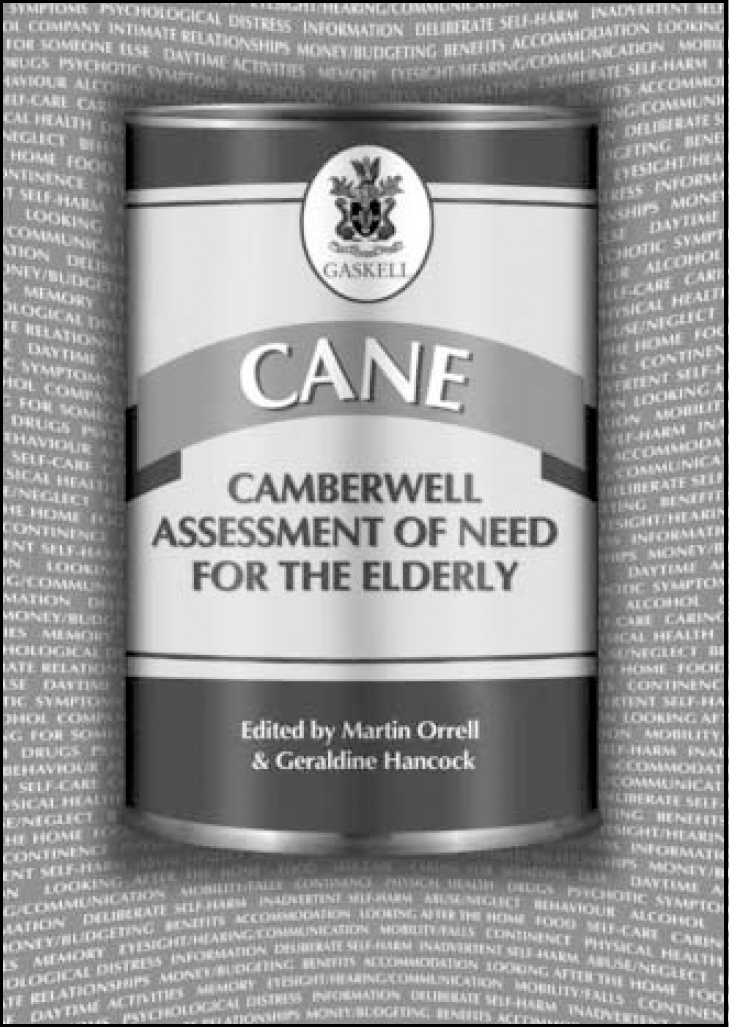
Needs assessment has become an imperative for commissioning authorities in healthcare systems as a way of ensuring that informed judgements are made on providing appropriate healthcare for local populations. The Camberwell Assement of Need for the Elderly (the CANE) was developed as a tool to assess the needs of older people, especially those with mental health problems.
This is a multi-author volume describing the development and use of the CANE in different settings. Surprisingly, parts of the book are highly readable, I suspect because of the choice of authors. It begins with a pithy foreword in which Professor Grimley Evans gives some of the background to the development of needs assessment tools and aims some barbed comments at the politicians who run the National Health Service.
As I read the book I realised that needs assessment has become part of common medical terminology but previously I had not fully understood the concept. The editors provide a helpful introduction in which they describe the principles of needs assessment and how definitions have changed. There are chapters on the validation of the CANE in different settings and interesting asides, for instance explaining the funding of the German healthcare system.
The CANE itself is available in long and short forms and needs are determined in a variety of domains by patients, carers and professional. It is aimed at multi-disciplinary assessment. When I gave the staff in my day hospital a copy they were not over-impressed by it, although they did only use it on a few patients and the concept of needs assessment is a new one for them as well. What did strike me was that the CANE is an ideal way to determine needs in order either to develop services or to defend already existing services.
So should you buy this book? Well, it depends on who you are. I would suggest that it's a book that all departments of old age psychiatry should have and that clinical directors and managers of old age services should have access to. Although most clinicians who pick it up are unlikely to read it all the way through, the discussion of needs assessment in itself make purchase justifiable and once one gets beyond the bland (although necessary) statistics there is enough stimulating material to make it a worthwhile read.





eLetters
No eLetters have been published for this article.